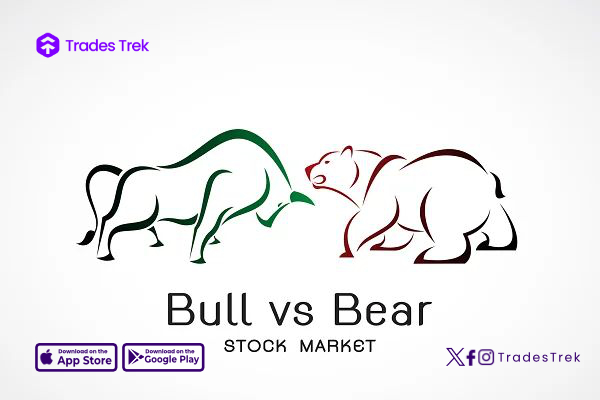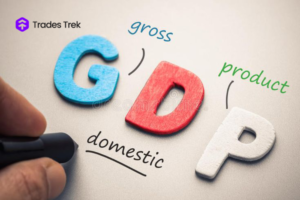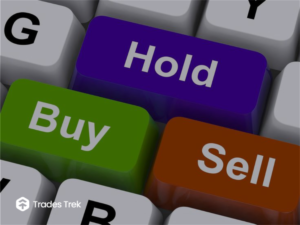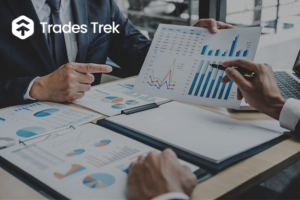Bull and bear markets are natural parts of the stock market cycle
What is a Bull Market?
A bull market refers to a period when the prices of financial securities, including stocks, are rising or are expected to rise. Typically, a bull market occurs when there is a significant increase in stock prices This is often driven by factors such as; strong investor confidence, economic growth, and favorable market conditions. It is called a “bull market” because, like a bull that charges upward with its horns, this market phase moves aggressively upwards, representing optimism and growth.
What is a Bear Market?
A bear market is characterized by a prolonged decline in stock prices, often by 20% or more from recent highs. This decline often signifies pessimism, economic downturn, and reduced investor confidence. The term “bear market” originates from how a bear swipes its paws downward when attacking, symbolizing a market moving downward. While a bear market is generally seen as “bad,” it can present opportunities for buying undervalued stocks, especially for long-term investors.
Practice your investment strategies for free in a simulated environment. The Trades Trek Stock-Trading Simulator is available for download on Android. Register today and get N500,000 in virtual cash to start your stock trading journey on the platform.
Identifying a Bull Market and Bear Market
Bull and bear market conditions are bound to happen in the stock market. So, here are a few indicators that can point you in the direction of the market condition:
Economic Indicators: During a bull market, indicators like increasing GDP (Gross Domestic Product), rising employment rates, and growing consumer confidence are prevalent. Conversely, a bear market is often marked by declining economic indicators, such as shrinking GDP, high unemployment, and reduced consumer spending.
Stock Prices: A consistent rise in stock prices signifies a bull market, while a continuous drop indicates a bear market.
Investor Sentiment: In a bull market, investor sentiment is positive, leading to increased buying of equities and stocks. In a bear market, investor sentiment is generally negative, leading to selling or holding off on purchases.
Impact of Bull and Bear Markets on Financial Securities
In a bull market, investors are generally more willing to take risks, leading to increased trading volumes and higher stock prices. This is a favourable period for companies to issue new shares and for investors to see returns on their investments. While in a bear market stock prices decline, and trading volumes may drop as investors become more risk-averse. While this may not seem favourable, bear markets can also provide opportunities to buy quality stocks at lower prices.
Importance of Understanding Bull and Bear Markets
Knowing the differences between bull and bear markets and how they impact financial securities is vital for any investor. It enables you to:
- Make informed decisions on whether to buy or sell stocks.
- Develop strategies to maximize gains in a bull market and minimize losses in a bear market.
- Understand the broader economic factors that affect the Nigerian stock market and its equities.
Are Bear Markets Good or Bad?
While bear markets are often seen negatively due to declining stock prices, they can present opportunities. Savvy investors use bear markets to buy stocks at lower prices, expecting them to increase in value when the market recovers. For beginners, it’s important to know that bull and bear markets are natural parts of the market cycle.
Conclusion
Whether the market is rising or falling, there are always opportunities for those who understand the dynamics of these market conditions. By identifying the signs of a bull market and bear market and understanding their impact on financial securities, you can make more informed investment decisions that align with your financial goals.
FREE STOCK-TRADING SIMULATOR
Practice your investment strategies for free in a simulated environment. The Trades Trek Stock-Trading Simulator is available for download on Android. Register today and get N500,000 in virtual cash to start your stock trading journey on the platform.




